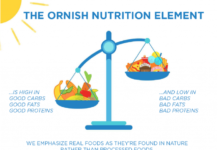We always think that we can get enough nutrients on a daily basis. But have you ever felt that suddenly one day, when you were sitting at work, you stood up and suddenly felt dizzy? It is a sign that you may be undernourished. Let’s take a look at some of the nutrients our bodies are most likely to be deficient in!
1. Calcium
Why calcium is good for you: The bone system needs calcium. The heart muscle and other muscles of the body also need enough calcium. Studies have shown an association between getting enough calcium and lowering blood pressure, as well as good weight control.
According to the American Institute of Medicine, experts in establishing nutritional needs, you need more calcium as you get older. Calcium needs for each day:
- Age 19 to 50: 1000 mg
- Age 51 and older: 1200 mg
How to get enough calcium: Three servings of low-fat dairy, an important part of a balanced diet, will provide all the calcium you need. If you are allergic to dairy foods or are lactose intolerant, you can get calcium from calcium-fortified products, dark green vegetables, and nuts.
2. Fiber
Why fiber is good for you: Fiber is good for the digestive system, lowers cholesterol, and stabilizes blood sugar. Fiber increases satiety and is abundant in low-calorie foods, so it helps you control your weight. Fiber can also help lower LDL or bad cholesterol, reducing the risk of heart disease.

The recommended daily intake of dietary fiber various for different age groups as follows:
- Children aged 1-3 years: The recommended total daily fiber intake is about 19 grams for both boys and girls.
- Children aged 4-8 years: The recommended total daily fiber intake is about 25 grams for both boys and girls.
- Children aged 9-13 years: The recommended total daily fiber intake is about 31 grams for both boys and girls.
- Adolescent boys aged 14-18 years: The recommended total daily fiber intake is about 38 grams.
- Adolescent girls aged 14-18 years: The recommended total daily fiber intake is about 26 grams.
- Adult men aged 19 years and older: The recommended total daily fiber intake is about 38 grams.
- Adult women aged 19 years and older: The recommended total daily fiber intake is about 25 grams
How to add fiber:
- Fiber is found in fruits, vegetables, all fiber-rich whole grains that need to be included in daily meals, and legumes that are added several times a week.
- Snack on whole-grain crackers, fruit, vegetables, nuts (including natural nut butters) or popcorn (whole-grain) instead of regular cookies, candy, or potato fries.
- Choose whole grain breads and cereals, and pastas made from wheat or from other grains such as quinoa, millet, barley, wheat flour and rice.
- Choose breads that contain more than 3 grams of fiber per slice. For cereals, there should be more than 5 grams of fiber per serving.
- Start your meal with a bean soup like lentils or black beans.
- Add washed or canned chickpeas, kidney beans or black beans to salads, soups, egg dishes, and pasta dishes.
- While dietary fiber is best, other fiber supplements can help you get your daily fiber needs. Examples include psyllium, methylcellulose, wheat dextrin and calcium polycarbophil. If you use dietary fiber supplements, increase the dosage gradually. This can help prevent bloating and muscle slippage. And equally important is to stay hydrated as you increase your fiber intake.
3. Vitamin A
Why Vitamin A Is Good For You: You need vitamin A for the function of your vision, your genome, your immune system, and many other organs.
Vitamin A comes in two forms: retinol (which is ready for use by the body) and carotenoids, which are the raw form, which the body needs to convert to Vitamin A.
How to add fiber: Make your meals colorful. Top picks include: carrots, sweet potatoes, pumpkin, spinach, cantaloupe, broccoli and tomatoes.
4. Potassium
Why Potassium Is Good For You: Potassium occurs in every cell in the body. Potassium plays an important role in maintaining muscle, nerve and fluid balance. Potassium also strengthens bones and is needed for the body’s energy production. Getting enough potassium also helps you fight high blood pressure.
Potassium plays an important role in maintaining the function of the nervous system
How much potassium you need: Men and women 19 years of age and older need 4700 mg of potassium per day.
If you have high blood pressure, review with your doctor or pharmacist what medications you are taking to control your blood pressure. Some medications including diuretics can cause you to lose potassium, so you need to replenish the lost amount.
5. Folic Acid
Why folic acid is good for you: If you are pregnant, folic acid is especially important. Folic acid is the synthetic form of the vitamin B folate. After pregnancy, folic acid and natural folate help protect the fetus from neural tube defects (and possibly cleft lip or cleft palate) for the first 30 days.

A daily supplement of 400 micrograms of folic acid from dietary supplements is recommended for pregnant women (up to 800 mcg antenatally). Folate is also optically transparent during pregnancy. It is involved in cell production and protects against certain anemias. Pregnant women need 600 mcg per day.
6. Iron
Why Iron is Good for You: Sac is responsible for transporting oxygen to cells and tissues in the body. Iron is important for women who need to get enough iron before and during pregnancy. Pregnancy increases the body’s iron needs and can cause iron-deficiency anemia in new mothers.

Men need 8 mg of Iron per day. Women need 18 mg per day from age 19 to 50 (27 mg if pregnant) and 8 mg from age 51 and older (since this age no longer loses iron through menstrual cycles).
Spinach, raisins, and legumes are all good sources of iron. Whole grains are also high in iron. Always remember that the percentage of iron absorbed from plants is lower than from animal sources.
7.Vitamin D
Why Vitamin D is good for you: Your skin makes vitamin D from sunlight, but this ability depends on your age, skin color, and where you live. Some experts recommend getting vitamin D from meals instead of bathing.
The current recommendations for adults ages 19 to 70 are 600 units of vitamin D per day and 800 units per day for people 71 years of age and older.
How to get vitamin D: Natural sources of vitamin D are found in fish and egg yolks. Foods rich in vitamin D include milk, yogurt, some orange juice products, and bread. You can also use a combination of food and functional foods to supplement vitamin D for your body.
Vitamin and mineral deficiencies are common in everyone including adults.Keep an eye on your body and always make sure to get the vitamins and minerals your body needs. You can refer to a few supplements below.
By NewYork News9 and GPT










